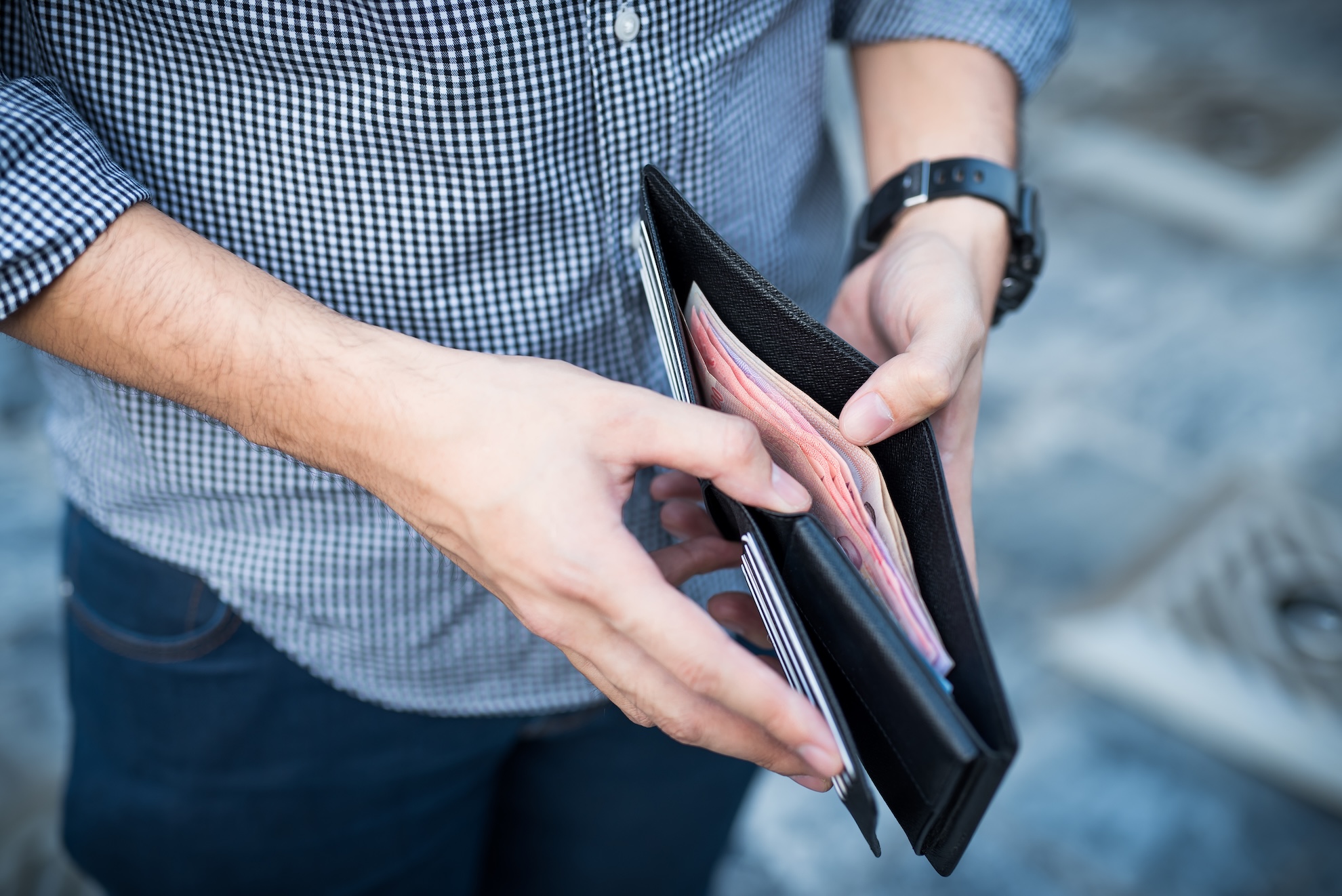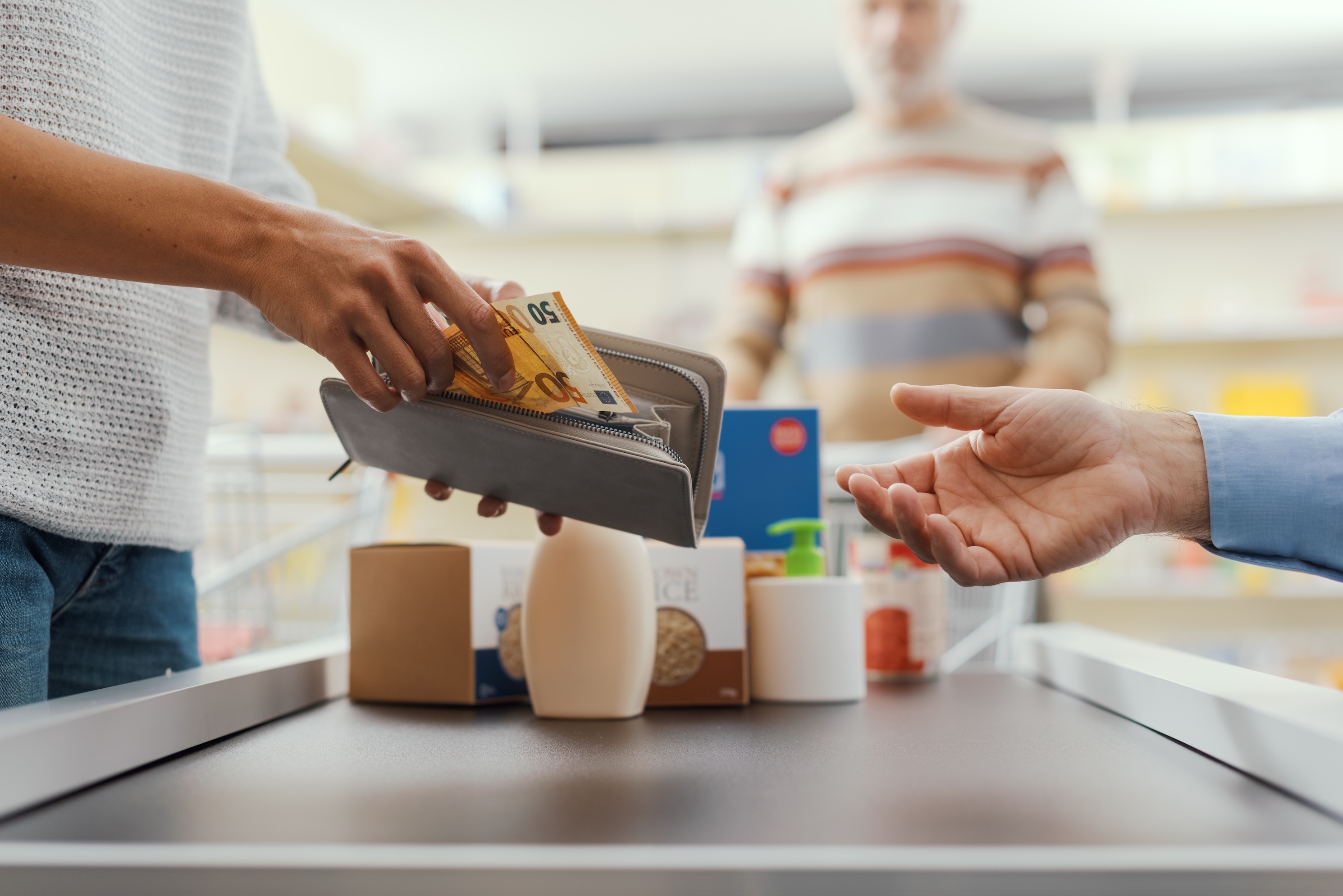
It can be incredibly exciting to plan a trip to a new part of the world. But with that unknown also comes risk and uncertainty: the farther you’re going from home, the more unprepared you may feel along your journey.
No matter where on earth you go, there are certain guidelines to keep in mind to help you stay safe and spend wisely.
Cash, Card, or Digital Payment?
When planning your trip, determine the most common and accessible forms of payment throughout your destination. Are you traveling to Mexico, where 90% of consumer transactions are done in cash? Are you visiting Sweden, where digital payments have become almost universal? Perhaps you’re traveling to China, where credit cards never became popular but digital payments now dominate (thankfully, foreign travelers can now pay this way, too).
There are, of course, security concerns associated with each payment option.

Cash can be stolen. When withdrawing cash, you are vulnerable to countless ATM scams, not to mention the extortionary fees charged by the countless Euronet ATMs found in most European travel destinations.
Credit cards offer more protection and accountability than cash, but using the wrong card can entail a hefty foreign transaction fee; dynamic currency conversion can also dramatically increase costs. You might even get scammed simply paying by credit card at the gas station.
Sadly, credit card fraud is much more common than most people think. Whatever you do, be sure to notify your credit card provider that you’re traveling in the first place, keep an eye on posted transactions, and don’t hesitate to lock your card if needed.
Currently, digital payments like Apple Pay are considered safer than both cash and credit cards. However, we simply don’t (yet) live in a world where a traveler can count on paying their way through a trip with digital payments alone.
Generally speaking, your safest option is a hybrid approach. Bring some cash, but not so much that it poses a security threat. Pay with a credit card where appropriate, but make sure you have the right card, monitor your transactions, and be especially wary if you find yourself in a situation that doesn’t feel right. Digital payment can be a great option when available, but will need to be set up in advance and may not be an option in many circumstances.
The point is this: understand the norms of payment in the places you’re traveling, plan accordingly, and know the risks.
How Much Cash Should I Withdraw?

In almost every travel scenario, having at least some cash on hand (around $50-$100 a day) is a smart, potentially trip-saving idea.
Depending on where you’re traveling, it might make sense to obtain some of your destination country’s currency through a bank or a currency exchange like SafeDinar.com in advance. Why? Because conversion services anywhere near an airport (as well as in many hotels) can be extremely expensive, offering you the worst possible rate. Can you afford to have none of your destination’s currency upon arrival?
If you know you’re going to need to rely on cash, it becomes essential to determine your approximate daily budget to be sure you have the right amount of cash on hand: too much cash on hand creates unnecessary vulnerabilities to theft, too little could accidentally grind your trip to a halt, or force you roll the dice on a questionable ATM.
Bear in mind that different ATMs, banks, and countries all have their own withdrawal limits. In the US, $10,000 is the limit above which your bank must report the withdrawal to the IRS for the purposes of money laundering prevention.
The last factor to keep in mind is simply that the value of currency can dramatically change. For instance, the Turkish currency has been subject to frequent change, which could significantly alter the value of the cash you have on hand. The farther off the beaten path you travel, the more you should keep this in mind.
To Tip or Not To Tip?

For American tourists, navigating the variable meaning of tipping at restaurants is an almost guaranteed source of confusion and potential discomfort.
Thankfully it’s not that complicated: in most of Latin America and Europe, tipping is not expected but still appreciated, with 10% considered as a thoughtful gesture for exceptional service. In parts of Asia — like Korea and China — leaving a tip is not only considered unnecessary, but potentially offensive.
Know the norms before you go, and remind yourself that it really is okay not to tip in a place where that gesture isn’t customary.
Does Travel Insurance Make Sense?
Are you taking a particularly expensive, lengthy trip to a particularly isolated, higher-risk part of the world? Then travel insurance might be a good idea.
Travel insurance doesn’t make sense for everyone on every trip, even international trips, but it can be a lifesaver under the right circumstances. Put simply, the longer, riskier, and more complicated your trip, the stronger the argument for travel insurance.
Generally speaking, the most important element of travel insurance is usually emergency medical care. Be sure to take a look at your credit card to understand what travel insurance you may have already.
Understand Local Laws and Regulations
Understanding local laws can save you not only from uncomfortable encounters, but also any potential trouble with the authorities (travel insurance can’t help you out with unexpected legal fees).
Photography in places like the Vatican, South Korea, and Amsterdam could get you in serious trouble, while places like Dubai are notorious for strict laws and customs regarding alcohol, swearing, dressing, and beyond.
Meanwhile, internet access is famously restricted in China, making a VPN a virtual requirement for Western travelers planning lengthier trips.
On the savings side, many American travelers are unaware that they can save as much as 30% on higher-value purchases made throughout Europe and elsewhere by securing a VAT refund.
What About Leftover Cash?

If you find yourself back home with some of your foreign currency left over, you can easily sell it back to us at your own pace without needing to wait in line at a bank or airport. Just select your currency, print the generated label, pack it up, and drop it off at any FedEx location. One day after we receive your currency, you will receive a deposit in your bank account of choice.
Safe Travels!
We hope these tips set you up for a smooth, safe journey, with minimal surprises. Bon voyage!






